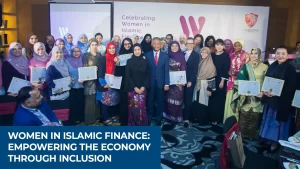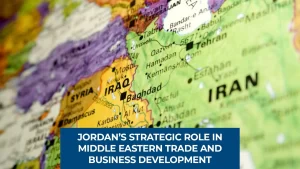As a Jordanian business expert with a strong focus on Islamic finance, I have observed a growing interest in Islamic banking and its principles of ethical finance among investors and consumers alike. This interest reflects a broader trend towards more socially responsible and equitable financial practices, aligning with the values of justice and fairness inherent in Islamic finance.
UNDERSTANDING ISLAMIC BANKING
Islamic banking is based on principles of Shariah law, where the Islamic law of contracts deems acceptable business practices to involve fair and reasonable risk sharing and prohibits usury or interest. Most importantly, this system does not allow any financial practices to be considered by the majority, and it is more like exploiting the masses. At the same time, it encourages the absorption of values other than mere investments in tangible assets to enhance society. Having been raised in and working in Jordan, I understand how many of these principles would encourage potential investors to participate in ethical business operations.
Islamic banking also allows partnerships in which both the bank and the customer share risks and revenues. The care model enhances the unity and matching goals of both, making a change in a financial scheme more reasonable. In a world where individuals cannot trust financial executives, this principle is one of the rare examples of ethical finance.
THE GROWTH OF ISLAMIC BANKING IN JORDAN
Jordan has long been a leader in promoting Islamic finance within the region. The country has established a robust legal framework to support Sharia-compliant banking, leading to a significant rise in Islamic banking institutions. As a Jordanian Business Expert, this trend will continue as more individuals and businesses seek financial solutions that reflect their ethical beliefs.
The Jordanian market offers various Islamic financial products, including sukuk(Islamic bonds) and Mudarabah (profit-sharing contracts). These products aim to provide competitive returns while adhering to Sharia principles. The government’s supportive stance on Islamic finance has further enhanced the attractiveness of these products, making them viable options for both local and international investors.
WHY ISLAMIC BANKING MATTERS
Islamic banking is not merely a financial alternative; it embodies a comprehensive ethical framework. As a Jordanian Business Expert, I have seen how these principles can promote social justice and economic stability. By engaging in Islamic banking, individuals and businesses safeguard their financial interests and contribute to their communities’ welfare.
Moreover, Islamic banking offers diversification opportunities in a landscape often marked by economic volatility. Ethical finance provides long-term, socially responsible investment avenues that align with the values of many investors today. For those connected to Jordan, I encourage you to explore these opportunities and the benefits they can bring.
CONCLUSION
In conclusion, Islamic banking represents a unique approach to finance that merges ethical considerations with practical financial solutions. As a Jordanian business expert, I understand and embrace these principles, which are essential in today’s economic landscape. With a solid foundation in Islamic finance, Jordan is well-positioned to lead the way in promoting ethical banking practices.
For further insights or assistance in navigating the complexities of Islamic finance, please visit my website at (drraedelomari.com). I am here to support you in achieving sustainable growth through ethical financial practices.






